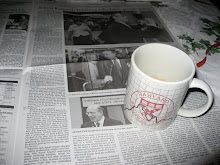On Literacy
It seems to me literacy is (partially) a process that is influenced by numerous factors: social, economic, technological, and educational. The emphasis here though, is that literacy is a process – it can evolve in different ways as the process is impacted by different variables.
On the surface, literacy has to do with reading and writing, or as a way we label people, either as “literate” or “illiterate.” The natural extension of this is that literacy is something of an operating software that drives individual human lives, the operating systems of society (business and politics), and the formation and transmission of knowledge. The quality of the software, its efficacy, and the speed at which it operates, are all dependant upon social/economic variables. Without this software – without literacy – the world isn’t going to run. (At this moment if I could set some Postman lyrics to music involving repetition of the word CONFUSION, I would. I’m thinking of the state of the world, a broad phrase meant to encompass anything negative, which leads me to think that our varying literacies have obscured rational communication from the political to proletarian level. The flow of info. from politics to the people, I mean.) From these observations, it seems that I connect with Richard Ohmann’s ides on literacy.
It’s isn’t easy to generalize as we see from the scholarship that we’ve been considering in class. In fact as I compose this blog entry I find myself wanting to write pages of text that include highlights from our readings – but WAIT! We did that already. So I’ll limit this, for now, to a few tasty points.
- Freire + Macedo > language + reality are interconnected > all things are texts> reading the world precedes reading the word. Critical perception leads to interpretation, which eventually leads to rewriting the word. Oh yeah!
Finally, to address the person question: How do I understand literacy based on my own experiences? After volunteering with a community literacy program that seeks to read aloud to kids in housing crisis (The Reading Connection) and provide them with free books of their own, I still have more questions than answers when it comes to literacy issues. I’m thrilled to have the personal and practical experience of exposing kids to books, reading, and discussion based on their reading, but also find it difficult to solve some of the ESL barriers that arise. Hopefully some of my readings in this program will help me begin to answer those questions. For now, I’m settling on the experience of reading with the kids and helping them develop a love for books that comes from exposure to many types of reading material (from picture books, to graphic novels, to magazines, as well as traditional books).
- To be aware of both current scholarship in our discipline as well as current research regarding literacy.
- To apply both scholarship and research to society/culture and the classroom.
- Find ways to empower students to grow in their own interpretation of text as well as the world around them.
- Question literacy structures/inequities in the system.
As literacy teachers, it’s a given that we want to empower our students and give them tools that will help them succeed in life. It seems to me that professors can sometimes be gatekeepers of knowledge by controlling the discourse and perhaps unintentionally barring students from entering the discourse. More effort could be made to create discussion with our students where they can learn to deconstruct certain language structures around them. If they are interested, that is. So, at the college level, we want to expose our students to the discourse of our discipline and give them practical examples of how this discourse works.

3 comments:
I've encountered so many literacy folk that really believe there is a finish line for "achieving literacy." I love how you write that it is a process. I see myself as a lifelong literacy tortoise. :)
I agree with Sarah and you. Literacy is a process and teachers are gatekeepers that control--in many ways--a student's access to said literacy. That said, you're too smart for me. Goony-Goo-Goo.
Beth,
You are so sweet! I wish I could write a book one day and get it published.
Your comments about literacy are very insightful.
Post a Comment